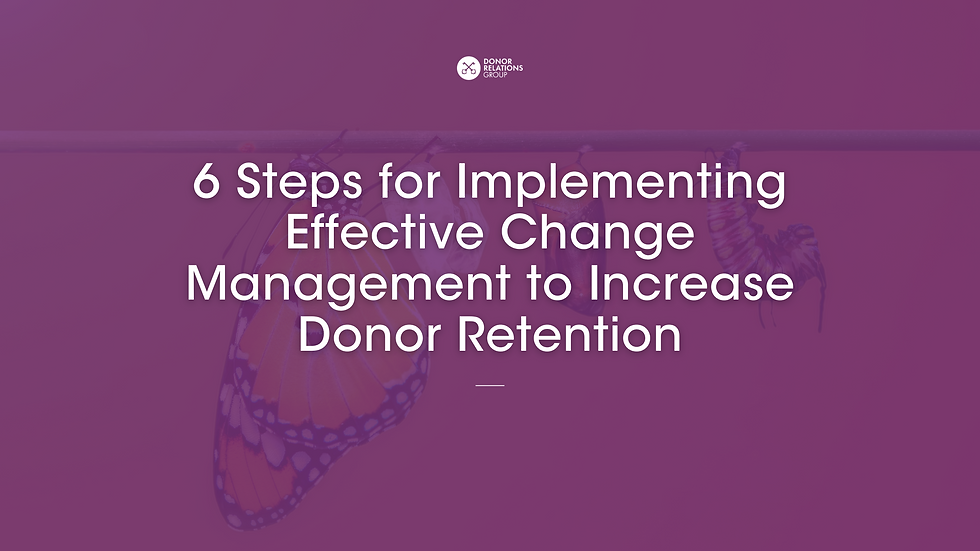5 Project Planning Tips That Will Set You Up For Success
- Lynne Wester

- Mar 29, 2023
- 3 min read
By Liz Menne

We've all been there — leadership has a new project in mind, and you're assigned to oversee the show. Many of us get the "deer in the headlights" look when starting something new, but have no fear! Our DRG team is here to help you feel confident with any new setting or project. Here are five tips to help you organize your best project yet:
1. Start at the end. When you travel, you always start with the destination and then plan the route to get there. It's no different with our work projects. Make sure you have a clear vision of what success looks like for your project. Write it down, sketch it out, and keep it on a separate sheet of paper to keep it front and center while you are working. While the final result might not look exactly as you planned, it will be your north star while you push forward.
2. Connect with leadership. Once you have your vision of success, connecting with the leaders driving the project is vital to ensure you are on the same page. This conversation allows you to make adjustments before involving key players and ensures you know what leadership expects from the project. Knowing this enables you to craft your communication to leadership to ensure you're on track and can identify any roadblocks they can assist with — while also making sure they know the planned outcome (aka not adding more to the project or project creep).
3. Identify stakeholders and their engagement. There are a lot of people involved in projects. Stakeholders could be those you need to help finish the project, team members who need status updates, or those who will receive the final product. Create a list of stakeholders along with some engagement details such as:
Role in the project
Areas of responsibility for the project
The interest level of the project
Communication needs (often, occasionally, rarely)
Communication preference
Influence over the project
Identifying and having notes on stakeholders will keep you organized on who needs updating on progress, who is in charge of specific tasks, who you can connect with when you run into roadblocks, and more! The great thing about this document is it will flex with you as the project progresses. Some people will need to be added or removed over time. The key to this piece is to start and return to it as needed. Stakeholder management documentation is easily created in excel. We have a sample for you here! There are also plenty of templates out there — Google is your best friend.
4. Plan your communication. Did you know that most of a project manager's work is communication? Whether it's project updates, keeping tabs on tasks, or keeping the project from getting out of control, you will communicate A LOT. Have a plan on what routine communication you will provide, how often you will give it, and how you will share the information. The communication could be as simple as updating your boss in your 1:1, but you need to know what communication is required to keep the project going.
5. How to track progress. Projects have a lot of tasks, people, dates, and deadlines. It's important to keep everything in one place. Whether you keep it all in Excel or have a project software such as Asana, Microsoft Project, or Trello — define your project home. You don't want to search 100 places to know what is happening with your project. Instead, share this home base with everyone in the project.
While you can do many more things before starting your project, you shouldn't spend the entire time planning. The project only works if we execute it! Starting here will provide you with the foundation to knock your next project out of the park.
BONUS TIP: Once you get started with your project, don't forget to ask questions. You might think you know what you need from the data team or your communications team — however, when you start with questions, you'll learn a few things you didn't know before. You are the project manager, not the one with all the answers. So use your experts! They will help you work through the roadblocks you didn't see coming.
What are your favorite project planning tips? Do you have a favorite project management platform? Let us know in the comments below!








